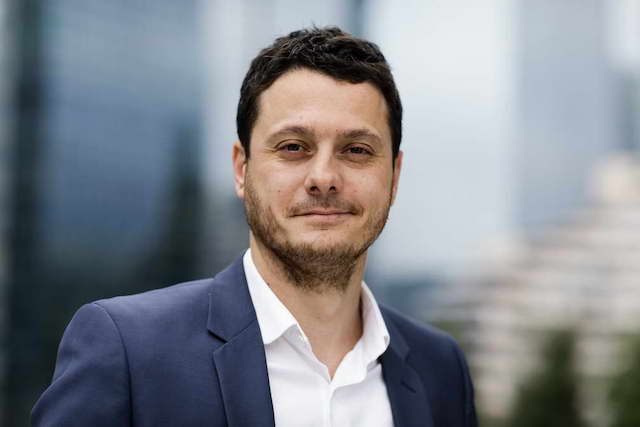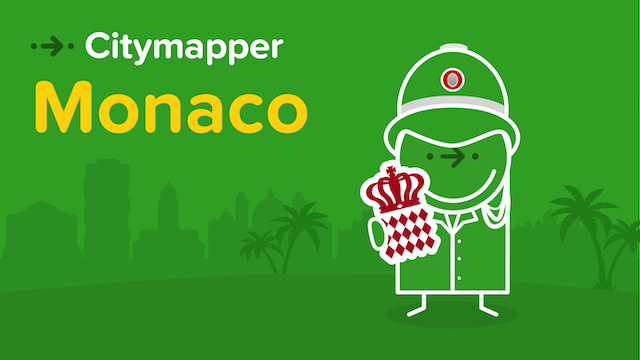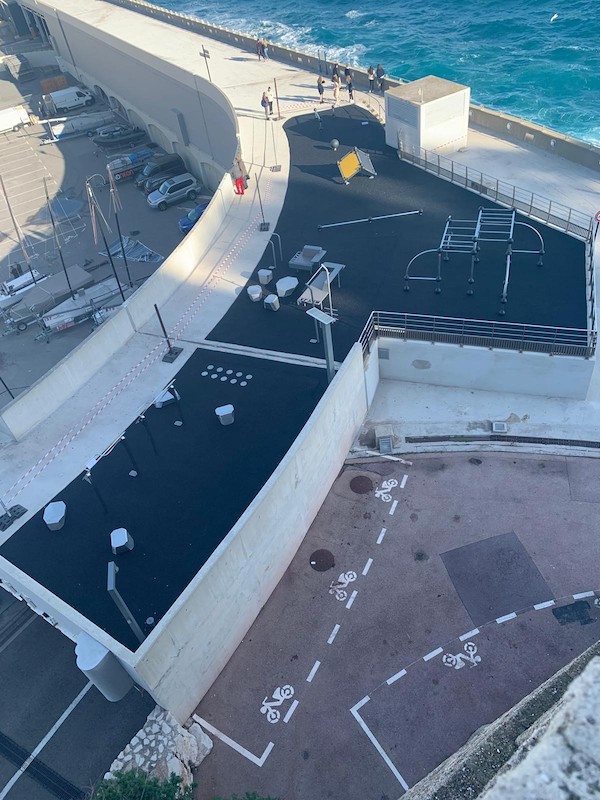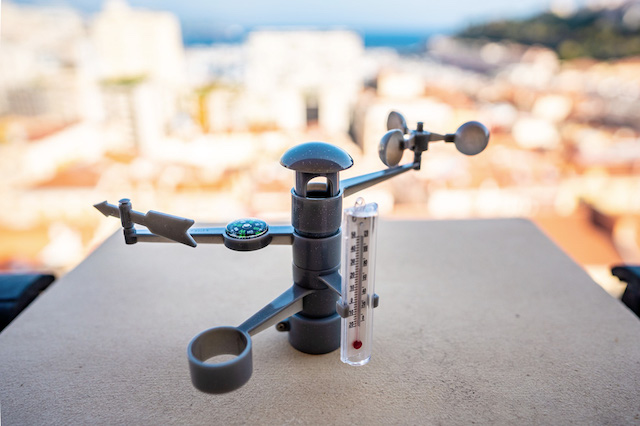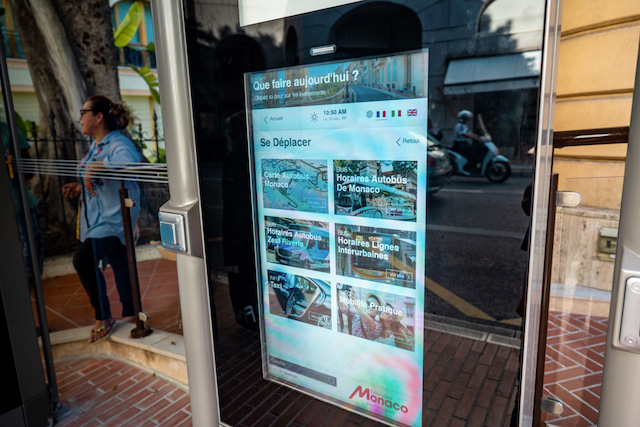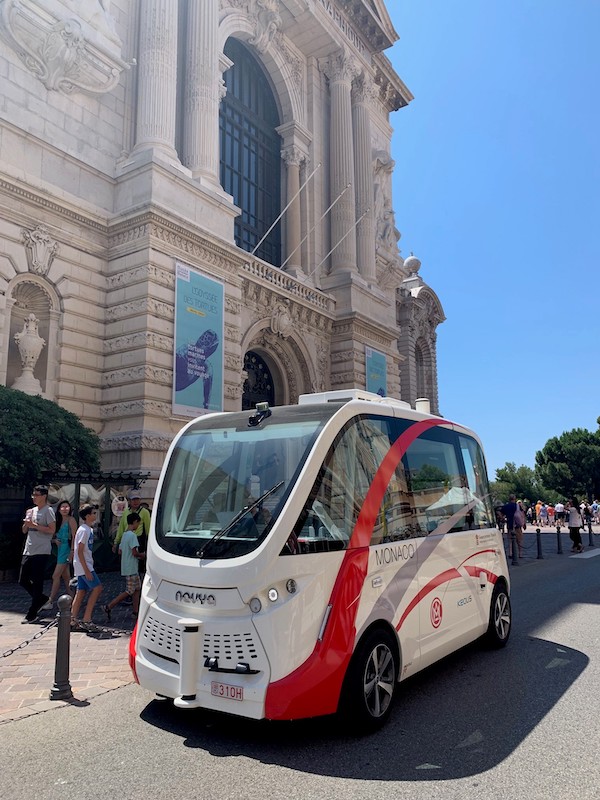Georges Gambarini talks to Monaco Life about what it means to be a Smart City, why we need 5G, and the exciting new technology that he and his team are set to roll out in 2020.
Monaco Life: Why were you brought in to take control of Monaco’s Smart City programme in October 2018?
Georges Gambarini: Monaco has been a Smart City for a while now, but we needed to enter ‘Phase Two’ and go deeper and faster to create new digital services. Smart City Monaco is one of the Extended Monaco projects and my main purpose is to create a new vision of what a Smart City represents.
How do you create a Smart City?
There are two main axes of my job. Firstly, I create new multi-lingual digital services for residents, workers and visitors in Monaco. Secondly, I create new digital tools for government staff to use on a daily basis. Within that, there are three main categories…
Mobility: It is our job to help people access information on things like traffic jams and public transport timetables as easily as possible. We want fewer people taking their cars to go to work or the shop, but we also know that people will choose cars if they think they don’t have the right information on public transport. So, we are working on projects like Citymapper, which unifies all of our transport services in Monaco with one digital app. This is a world-wide multi-lingual application with a geographical scope from the Italian border to the Nice Airport, and allows users to plan their travel based on real-time access to all the various timetables.
Life quality: Another part of my job is to create new services in order to provide a better life quality to residents, visitors and workers. MonaMove is one such project and the aim is to provide a new digital sports station with free coaching for users. So far, we have had many people download the app, but we also have users who are not using the app, just the hardware. We know this because there are sensors on the equipment, and we can see the times, days and equipment that are most popular with users. So, it is getting great traction already, and we are very proud of this project. MonaMove is an example of how we aim to be inclusive, to make sure that digital does not create borders with some people. You can exercise using your mobile app if you want to, or you can exercise without using the app. But maybe over time, you will become familiar with it and improve your digital culture. Digital is for everybody, not only for young people, and while we don’t want to force it on people, we do encourage it, because it is the way of the world.
Urban planning: The job of my team and the government is to manage the city, and to do this we need to know the city. This year, with new technology, we will be monitoring a variety of things in the city streets: the average speed of cars, the air quality, the noise levels. We will even be able to monitor all of the parking spaces, and the next step will be an app that lets you see which spaces are free and available to book.
By doing this we are serving one of our major objectives, which is to foster our energy transition. Better management of our city means less consumption of energy, a decrease in traffic jams and therefore fewer emissions. The main essence of our Smart City is to be sustainable.
We have street lights, for example, which will increase in brightness when someone is walking underneath them and decrease when nobody is in the street, thereby reducing energy consumption. We will deploy some tech to monitor major works in the city, so we will have real-time tracking of noise, construction times, whether the work area is contained within the designated zone… If we find works that are not complying with the rules, authorities will be able to issue immediate fines. Of course, the law needs to evolve in order to provide digital’s full potential.
What are some of the new apps you are launching this year?
The Urban Report is an exciting new app that allows people to easily report things to authorities that they see throughout the city, for example road works. The right people will get the information and will try to find a solution as quickly as possible. Each citizen is part of the city and each citizen can help us manage the city effectively. Only digital can create this proximity between people and government action.
As great as digital is, it does raise concerns about privacy. So, how do you, as someone who is leading Smart City Monaco, reassure people of these fears?
Monaco is a very old country and very respectful of privacy because it is part of our business model. Providing security is also part of our business model. So, we try to find a technological approach that combines these two. In Monaco, we already have around 500 cameras manned by the police, and the rules of privacy are respected; we also have a very good police force in Monaco, so security is of a high standard.
What will the average person walking through Monaco notice over the next few months in terms of tech?
They may notice detectors because we are deploying around 15 digital detectors throughout Monaco in the first quarter. We will also deploy a series of smart traffic lights for testing. The aim is for buses to travel faster through the city on their routes because we think that if we improve the commercial speed of our buses, we will be able to attract more people to use the service, which means less cars. These ‘Smart’ traffic lights will be able to turn green when they detect an approaching bus, and we can apply this for other vehicles like police and ambulances. It will also help decrease the number of traffic jams in Monaco. We will be testing these in the this year.
People will also notice more digital screens throughout the Principality. We have already deployed 42 digital screens in three languages, featuring a lot of information about Monaco – transport solutions, information for tourists, waste management, even games. The screens have been used more than 50 times a day on average in less than six months so we are very happy with the initiative. Each screen location also provides free WiFi.
Another project that I am starting to work on involves low-tech. We still have a lot of old phone cables in Monaco, so the aim is to either remove them or reuse them by creating new services to utilise them in a different way.
We will also be developing a new ticketing app. It is the year 2020 after all, it would be nice to take the bus and pay with your phone. Hopefully, this will be ready in September for rentrée.
There are now 27 ‘Smart Cities’ across the globe, led by London, Singapore and Barcelona. Why is Monaco only now starting to introduce a lot of this technology?
We are a very small city and we need to find the right economic model to develop these kinds of apps, which is why we are a little late on certain things. But that’s my job, and the willingness of the government, to be a state-of-the-art city.
How important is 5G to Monaco?
5G will provide its full potential in 2020/2021. It is a very clever technology that enables digital services to perform at their optimum. 5G allows us to develop, for example, autonomous vehicles which require a precise and continuous internet connection in order to function properly.
Also, we are set to deploy a lot of tech throughout the city and each point will be a consumption point, so we need to increase our supply.
It wouldn’t be possible for the economy to go through what it is going through today without this kind of network. But we also understand that there is a lot of fear and misconception about 5G. The government, however, is monitoring, on a real time basis, electromagnetic field measurements throughout Monaco, making sure levels stay within regulation.
Last year we created a website called CartoRadio, where the public can find the main measures. This is important, because we know we need to be transparent. If people have concerns, we are more than happy to explain. We will continue to host education campaigns throughout the year on 5G and our new technologies and will also be communicating regularly with Monaco Life to make sure everyone is on board with the Smart City programme.
Interview: Georges Gambarini, Smart City Program Manager
